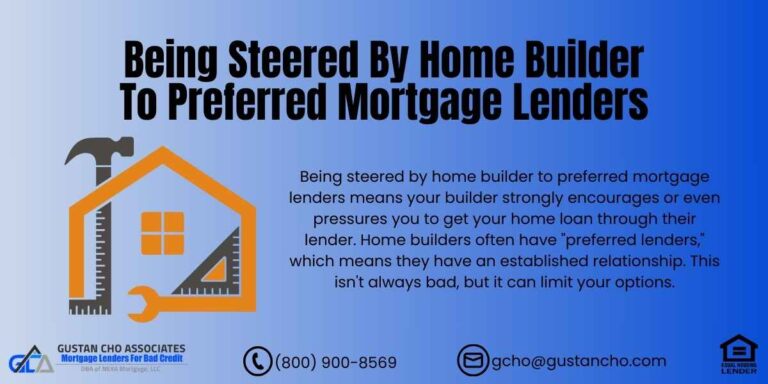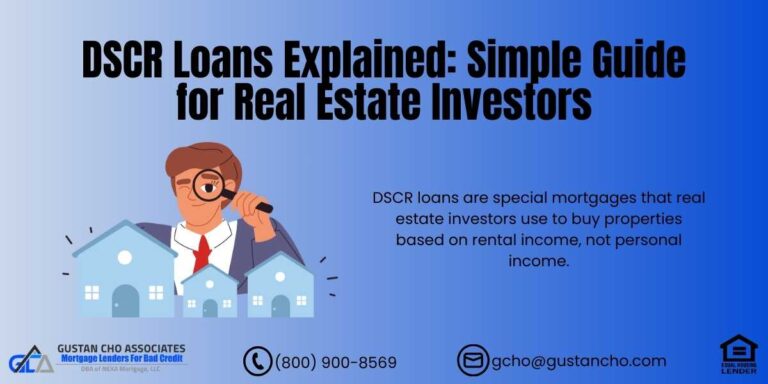Down Payment Assistance For First-Time Homebuyers
This article will cover down payment assistance for homebuyers. The team at GCA FORUMS Mortgage Group gets many first-time homebuyers inquiring about down payment assistance for homebuyers. Many homebuyers can easily afford the monthly principal, interest, tax, and insurance (PITI) but struggle with the down payment and closing costs. Many homebuyers do not know that HUD does not insure or guarantee down payment and grant programs. HUD, the parent of FHA, has nothing to do with down payments and grant programs.
Individual municipalities, county governments, and states offer down payment assistance and grant programs. HUD is not involved with insuring county government down payment or grant programs.
With the down payment and closing costs, the majority of inquiries we get daily can, hands down, easily buy a home and afford the new housing payment. However, qualifying for down payment assistance and grant programs isn’t easy. The following sections will discuss the down payment and grant programs. We will cover the step-by-step process of inquiring and who offers down payment assistance and grant programs.
What is down payment assistance?
Down payment assistance is a program that helps homebuyers come up with the cash needed for a down payment. It is a percentage of the home’s total purchase price that the buyer pays upfront. Mortgage lenders typically require the payment to help mitigate the loan risk. In addition, the assistance can come in grants, loans, or any other type of financial aid. They are usually offered by state and local governments, non-profit organizations, and private companies.
What Are Down Payment Assistance For Homebuyers
Down payment assistance for homebuyers is offered to first-time homebuyers by local and state governments. However, credit requirements, household income caps, and other restrictions exist. Down payment assistance for homebuyers is often referred to as DPA mortgage programs. HUD, the parent of FHA, allows down payment assistance for homebuyers to be part of the original FHA loan, which is in first position.
It is very common for most DPA mortgage programs to have loan applicants to have at least a 620 to 640 credit scores and debt-to-income ratio not greater than 31% front-end and 43% back-end. Most DPA mortgage programs have maximum income caps.
It is very common for our FHA buyers to inquire about down payment assistance for homebuyers. This quick blog advises clients to be cautious when thinking that such programs are what they are looking for. There is something very important to remember “Nothing in life is Free.” Down payment programs not funded by local grants but by a certain lender will have costs and stipulations. Click here for Apply For Mortgage Loans
Is Down Payment Assistance For Homebuyers a Loan or Grant?
Down payment assistance for homebuyers offered by mortgage lenders may require a second mortgage to pay back the assistance. The second type of down payment assistance and grant program offered to homebuyers is to have a minimum time to keep the mortgage before the down payment assistance grant is forgiven. Alex Carlucci, the regional managing director at GCA FORUMS Group, said the following statement:
There are different kinds of down payment assistance for homebuyers are grants, loans, and second mortgages. GCA FORUMS Mortgage Group has a fully forgivable FHA down payment assistance for homebuyers program that is forgivable after six months.
The forgiveable down payment assistance for homebuyers at GCA FORUMS Mortgage Group requires a 620 credit score, 48.99% debt-to-income ratio, borrowers paid so buyers need to get a 6% seller concessions. Rates are at 7.75%. This down payment assistance for homebuyers program is forgivable after six months. The reason is that such programs come with a higher interest rate than your typical FHA loan, and you’ll pay back the interest for a certain period. If you struggle with the total amount to purchase a home, rely on your lender and real estate agent to negotiate seller concession to offset the funds due at closing.
The types of down payment assistance programs
The most common types of down payment assistance programs include the following; Cash grants are financial aid given to homebuyers to finance their down payment that doesn’t have to be paid back. Wendy Lahn, the Chief Legal Counsel of Mortgage Lenders For Bad Credit, said the following about government grants:
Government agencies, non-profit organizations, or charitable foundations mostly provide down payment assistance grants. Grant programs are meant to build community and foster economic growth. This means they commonly contain a 5-year clause. Most government grants state the borrower must live in the home for at least five years.
Failure to live in the home after receiving the government grant means you must repay the grant. Most government grants must be repaid, at least partially. It’s also important to note that grants may come with certain restrictions, such as requirements related to the type of property being purchased or the time the buyer must live in the home.
Forgivable DPA Mortgage Loans
Forgivable down payment assistance mortgage loans typically come with low-interest rates, and they help homebuyers cover their down payment or closing costs. The loans, however, are payable and must be repaid over time.
Most forgivable down payment assistance mortgage programs are for first-time homebuyers who have not owned a home in the past three years. A first-time homebuyer is a buyer who had no ownership in a home in the past three years.
Even though some programs offer deferred payment options, the borrower does not have to pay until a specific time. That said, the borrower should carefully consider the loan terms, including the interest rate and repayment period, to determine if it fits their needs well.
First-Time Homebuyer Forgivable Down Payment Assistance Mortgage Programs
Forgivable loans are a type of down payment assistance loan that is forgiven after a certain period if the borrower meets certain requirements, such as living in the home for a specified period. Angie Torres, the National Operations Director at Mortgage Lenders For Bad Credit, explains how forgivable down payment assistance mortgage loans work:
Forgiveable DPA mortgage loans means after a certain time period, the down payment assistance and closing costs is forgivable. What this means is the homebuyer does not need to pay back the DPA and is forgiven.
Forgivable down payment assistance mortgage loans can be a great option for homebuyers needing help with their down payment but do not want to take on additional debt in the long run. Now, if the borrower does not meet the requirements for loan forgiveness, they will be required to repay the loan according to the terms of the program. So, you should carefully review the repayment terms, including interest rates and repayment periods, to ensure you are comfortable with the loan terms.
Share Equity DPA Mortgage Programs
Shared equity programs – these are programs that allow the homebuyer to buy a home with the assistance of, say, a non-profit organization or a government agency. Essentially, the organization gives you the down payment. In exchange, they hold an equity interest in the property, which means that when you sell it, the organization receives a share of the profits. These programs can be a good fit for borrowers who want to buy a home but cannot qualify for traditional financing.
Employer DPA Mortgage Programs
Employer programs – these are programs that are essentially provided to the employees by their employers as part of their benefits packages. These programs can give employees the funds to help cover their down payment or closing costs in their property investment venture. Not all employers provide these programs, though; when they do, the employee must meet specific requirements for approval.
Individual Development DPA Mortgage Programs
Individual development accounts – under this program, the borrower must deposit a certain amount of money into an account, matched by private or public money. The borrower can use this amount to cover the down payments or closing costs.
How to find down payment assistance programs
First, you should know that most down payment assistance programs are local, even though some may be offered state-wide. So, here are some of the top areas to find these programs.
State Housing Finance Authority DPA Mortgage Programs
State housing finance authority can get assistance programs from most housing financing authorities in every state. The authorities also offer home-buying assistance and education.
City and County DPA Government Mortgage Programs
City and county government programs – to boost homeownership, many cities and counties offer down payment assistance programs, especially to first-time homebuyers. So, you can check your local municipality’s website for more information on the available programs in your region. You can also get in touch with the loan officer to get more details.
The Department of Housing and Urban Development (HUD)
First-time homebuyers, you can also check the HUD’s website as there are some programs available geared at helping first-time homebuyers finance their homes. Every state has HUD-approved counselors, which will simplify the finer points of home investment and help you find financial assistance.
How Does The Down Payment Assistance For Homebuyers Work
Remember, the minimum down payment required for an FHA Loan is 3.5%. Those funds CANNOT come from seller concessions. They have to come from the buyer. You can use gift funds to help with the 3.5% due. John Strange of GCA FORUMS Mortgage Group explains the difference between down payment and closing costs.
Suppose you use gift funds as a source to cover the down payment. In that case, you will need an approved letter from your lender signed by both you, the borrower, and the person gifting the funds.
You must provide a bank statement showing where the funds originated and were deposited into your account. The maximum seller concession on FHA loans is 6%. The seller concessions can be used to pay for all the closing costs. Whatever is left over can be used to buy down your interest rate. You will have a far better financial situation when choosing this route over asking for a down payment assistance program. I hope you found this helpful, and good luck shopping for your home! Click here for Apply For Mortgage Loans Todays
Which DPA Mortgage Program is Best For First-Time Homebuyers
As we conclude, down payment assistance programs are a valuable resource for first-time homebuyers looking for help covering their down payment or closing costs. Ronda Butts, a dually licensed realtor and loan officer at Mortgage Lenders For Bad Credit, shares the following thoughts about DPA Mortgage Programs:
Down payment assistance for first-time homebuyer programs comes in many forms, which include grants, loans, and forgivable loans, where each program has its eligibility requirements and guidelines. Taking advantage of these programs will save thousands of dollars in your home ownership journey, which is crucial today.
Always carefully review the terms of your chosen program to ensure it is the right fit based on your needs. Additionally, it is highly recommended that you work with a qualified mortgage professional who can help you navigate the mortgage loan application process and determine which program would best fit your unique situation. Ultimately, the assistance programs will make homeownership a lot more accessible and affordable for first-time homebuyers and should be considered a viable option for those having problems saving for down payments.
Frequently Asked Questions on Down Payment Assistance For Homebuyers
DPA and its Clauses – What is Down Payment Assistance (DPA)?
Answer: Down Payment Assistance (DPA) refers to additional funds given to a potential buyer used solely to purchase the property. Or, at times, other costs associated with the purchase, including the closing costs. These programs may be funded by state or local governments, non-profit organizations, or private institutions. They may provide benefits such as grants, loans with no interest, low interest, or loans with payment delay.
Engagement in DPA, to which group becomes eligible?
Answer: Different policies on down payment assistance have different groups of beneficiaries. However, here is an outline of a few common characteristics:
Residential Property Ownership- First-Time Home Buyer Status
Most regions have programs targeting first-time property buyers who still need to own for three years. The definition of a first-time homebuyer is a person who has yet to own a home within the last three years.
Income Limits: Most programs impose an income cap related to the area median income (AMI). Most commonly focusing on low—to moderate-income potential house buyers.
Credit Score: Some programs will place a minimum credit rating that applicants must possess (about 620). Nonetheless, low or no credit rating prospects may be able to access programs for alternative credit layers.
Location-Based: Other DPA programs engage the purchase area of the house and might seek help for other houses in various cities, counties, and states.
How does down payment assistance work?
Answer: There are different types of DPA, and assistance can be provided in different forms:
- Grants: This money is not paid back, so there is no obligation to service it. It is usually given to people earning low or moderate incomes.
- Forgivable Loans: Such loans are structured so that repayment does not occur if the buyer stays in the house for an agreed period, which usually ranges from five to ten years. However, if the buyer sells or refines the property within this window, they repay the arrangement.
- Low-Interest or Deferred Loans: These are second mortgages taken to supplement the downpayment and are very flexible regarding repayment. Partial payments can be made before the full repayment or at the disposition or financing of the property.
Do I have to be a first-time home buyer to be eligible for down payment assistance?
Answer: No, only some of the time.
- Most of the programs are designed for first-time buyers.
- Still, an exception to this norm can be found predominantly in the DPA programs that offer the same to repeat buyers.
- This is especially true for those who attain the maximum household income and live in certain regions, among other qualifications.
- Where such a definition is extended, a person must have lived without being a homeowner for three years to be defined as a first-time homeowner.
What is the maximum amount of down payment assistance that I can get?
Answer: The down payment assistance amount you can obtain varies depending on the program’s territory. But it is mostly within the 3-5 percent range of the house’s purchase price. For this reason, some schemes may give one-off dispersals, while others may give the property percentage of the loan value as the program dictates.
What income eligibility is connected to the down payment assistance programs the concerned authority offers?
Answer: Yes, in most instances, some of these assistance programs regarding down payment are limited to certain qualifying income eligibility criteria based on the region’s earnings guidelines, particularly the area median income (AMI) by ethnicity. Let’s understand it better by understanding that earning the AMI level of 80 percent to 120 percent of the AMI in most cases applying this course. These limits help in a city that assists low to moderate-income homebuyers.
Can only the FHA loans qualify for down payment assistance programs, or can such programs be applied to other types of mortgages?
Answer: Most mortgages are combined with down payment assistance programs. FHA Loans: FHA is the second most common first mortgage behind conventional mortgages. Most DPA programs dovetail with FHA loans, which are already low in terms of the Equity Percentage, which is a 3.5% down payment of the purchase price.
Conventional Loans: The DPA program can only be offered with certain qualified mortgages due to policies of United States Government-sponsored enterprises Fannie Mae.
VA Loans: VA loans do not require a down payment and have no ceiling limits. Nevertheless, some programs may assist in the payment of certain closing costs.
USDA Loans classification
Customers seeking a USDA loan are not expected to put any amount down. Some DPA programs are allowed toward closing costs.
Will you have to pay back the down payment assistance?
Answer: This question can only be answered by explaining what type of assistance one gets:
- Grants: Being free money programs, grants are usually not paid back by the recipients.
- Soft Second Mortgages: In most cases, these types of loans are forgiven after you keep the loan and the property within 5-10 years. However, if a house is sold or refinanced before then, the borrower will have to pay back only a certain amount.
- Subordinated Loans: These loans only require repayment once the loan recipient relocates to refinance or sell the house.
Can the closing costs also be covered by down payment assistance?
Answer: Most of the time, down payment assistance funds can be utilized to pay both the down payment and closing costs. Hence, the borrowers incur these amounts using their funds. Some housing assistance programs in the budget program aid applicants with so-called “virtual” assistance only to cover the closing costs.
How do I apply for down payment assistance?
Answer:
- Step 1: Investigate DPA programs in your state or area by contacting housing authorities, non-banking companies, or lenders. DPA has pages with information standards and application forms for only some programs rather than the numerous others present on the web.
- Step 2: Go to the lending company that offers the ideas you wish to use and get prequalified for the type of loan you want. Your lender can often help you find programs in which you can enroll.
- Step 3: Participate in and complete any homebuyer education or counseling programs that may be offered as a component of the homebuyer assistance program. It is common practice for several first-time homebuyer DPA programs to include completing a relevant course.
- Step 4: Apply with the necessary documents, such as payslips, cover letters, bank details, and any other translation documents you have.
Do You Have to Take Homebuyer Classes when Participating in Down Payment Assistance Programs?
Answer: Yes, most programs created for assistance participants have a mandatory provision that the borrower must undergo homebuyer counseling education. These cover how to purchase a house, get a mortgage to buy the house, and retain the house. These are routine courses with a set duration of several hours or thereabouts that can be undertaken online or at a center.
Answer: Exceptionally, such programs may occasionally be stackable. So long as the stacking requirements of certain programs and those of the lender are met, assistance may be obtained by stacking certain assistance programs. Thus, you can merge a DPA from one state with an employer’s or a county’s assistance program. However, this is only the case sometimes, and even where such practices are allowed, they are subject to certain limits, which is why some people are advised to ring their lenders or even utilize the program themselves.
Answer: Is there any other reason people do not use down payment assistance programs? Answer: In as much as down payment assistance can offer ease to people, it is very important to highlight the fact that there are some disadvantages:
- Loan Terms: Further, since these conditions are attached to DPA programs, there may be higher interest rates and strict repayment days, among other things, so a cost-benefit analysis focusing on loan repayment is advisable.
- Repayment Obligations: Some guidelines define how some types of assistance can be used. For example, if a person takes out a forgivable loan but seeks to sell their property, move, or refinance within a specific period, that loan will likely be called back.
- Limited Availability: Due to the high number of applicants, some programs need more cash-level constraints, so applicants need to be patient in their application process.
How does down payment assistance affect my mortgage process?
Answer: Since down payment assistance requires additional steps to obtain and use, it may slightly prolong the mortgage process. Eligibility to such programs can also call for a greater loan verification request. However, even such requirements do not alter the mortgage process, and most lenders easily understand how to handle DPA programs.
Do down payment assistance programs exist in every state, say, California?
Answer: Yes, the residents of California may find some DPA programs, among others, as follows:
CalHFA MyHome Assistance Program: Repayment relocation funds bear an obligatory zero percent interest loan against the owner’s equity. The owner occupies 3.5% of the purchase price for a primary obligation for the dwelling.
Forgivable Equity Builder Loan: Loan amounts are forgivable after five years of occupancy to first-time buyers and low-income homeownership associates if they meet income eligibility.
City and County Programs: In California, many cities and counties have such provisions for low to moderate-income people for home buyers who wish for a home.
Down payment assistance could work wonders for homebuyers with low housing savings. There are numerous types of programs, and if you are eligible for one, you can easily and cheaply get into a house without spending too much during the initial stages. It is advisable to check the available or most helpful programs, considering the lender’s experience in DPA options.
Click here for Apply For Mortgage Loans







